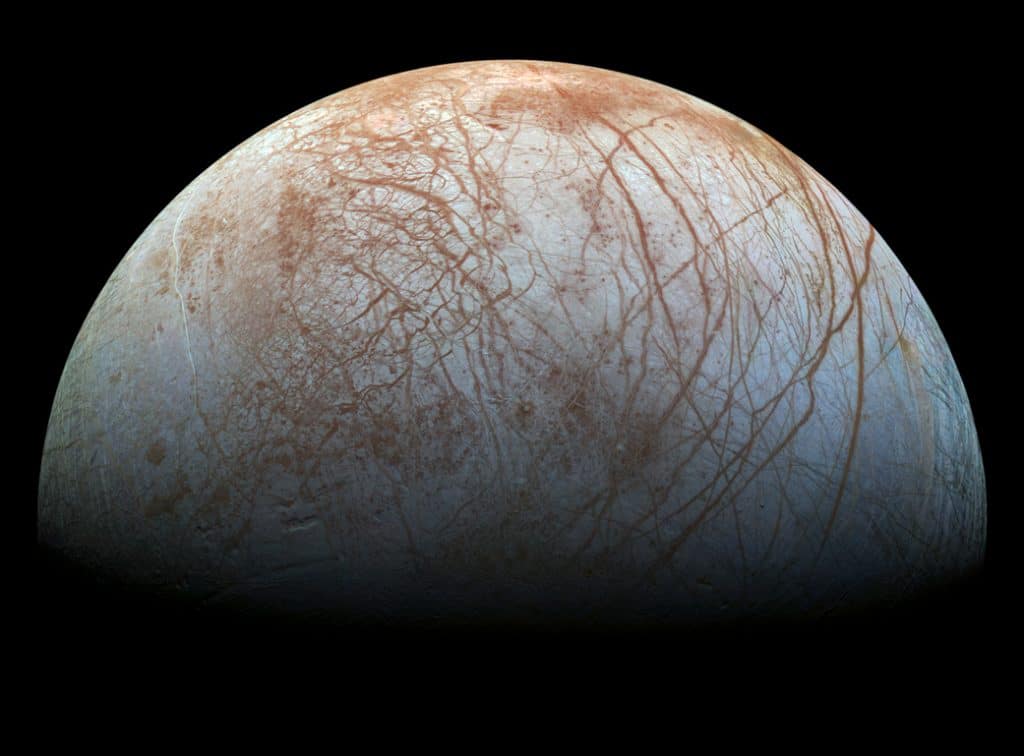
“Alien Germs”? Scientists say we must be prepared for this danger
Since we began exploring space in 1957, we have found no evidence of extraterrestrial life. But this does not mean that it does not exist, hiding under a rock on Titan or swimming in the oceans of Europe. Concerned about the first contact, a group of scientists sounded the alarm, saying that for our own good, we are better preparing for an alien “invasion”.
This invasion will not happen with flying saucers and laser weapons, but with microorganisms, which spacecraft brought to Earth in search of samples from other worlds.
said Anthony Ricciardi, professor of invasion ecology and aquatic ecosystems. at McGill University in Canada on the Gizmodo website.
Photo: NASA/JPL-Caltech/SETI Institute
Ricciardi and colleagues expressed their concerns in an article titled “Planetary Biosecurity: Applying Invasive Science to Prevent Biological Contamination from Space Travel” published in the scientific journal BioScience. .
“The science of invasions has been applied to biosecurity both nationally and internationally. My colleagues and I believe that biosecurity can also be enhanced on a planetary or interplanetary scale.
Invasive science refers to a group of disciplines that study how an “alien” (meaning “native”) organism behaves and affects an isolated ecosystem after it reaches there. For example, how animals behave after the introduction of a new predator, or the effect of a disease on a group with which they have never been in contact.

One conclusion is that “island” systems, such as Hawaii, New Zealand, Australia and Antarctica, which have evolved in near-complete isolation, are particularly vulnerable to the effects of invasive species. The same is true for our planet.
However, it is impossible to quantify the risks, since “we don’t have data on extraterrestrial pollution,” says Ricciadi. “The risk of disasters such as massive earthquakes or nuclear disasters is generally very low.” But its occurrence, although highly likely, is unacceptable and thus justifies preventive measures. “Interplanetary microbial contamination must be addressed in the same way.
There are also concerns about the reverse path: that microorganisms from Earth would blast off on our satellites, probes and rovers, and end up colonizing a place with favorable conditions, potentially destroying the original ecosystem before we have a chance to study it.
NASA has instituted rules to prevent biological contamination during space missions since the 1960s, and they have evolved since then. These include requirements such as assembly of all equipment in clean rooms, an inventory of all organic materials that will be used in the task, and level limits for microorganisms on surfaces.
The goal is simple: to make sure that if life is found during the mission, we’re sure we didn’t bring it there. And the danger is real: Recently, a new strain of fungi was discovered in a facility where spacecraft are assembled. Even worse, it is capable of producing a “biofilm,” meaning it can cling to surfaces and survive the cleaning protocols of the spacecraft assembly line where it was discovered.
“Although there is very little chance of that happening, we can’t afford it. Because once we get to this point, we feel like a failure,” Athena Kostenis, chair of the Space Research Committee (COSPAR), told Gizmodo.
“So we have to be very careful and be careful anyway,” Costinis said. “We have established protocols, [e] We make it tougher, to make it more efficient, so we don’t end up in this situation.
According to Ricciardi, we should also perform more scenario planning and horizon analytics, two common processes in the field of invasion science, in which data about relationships between ecosystem members are collected and analyzed on supercomputers and given to experts to create predictions and models from the future.
All of this, of course, would be much more effective if experts in the “science of conquest” were included in discussions of planetary defense. Nothing has happened yet.
Have you seen our new videos on Youtube? Subscribe to our channel!

“Organizer. Social media geek. General communicator. Bacon scholar. Proud pop culture trailblazer.”


